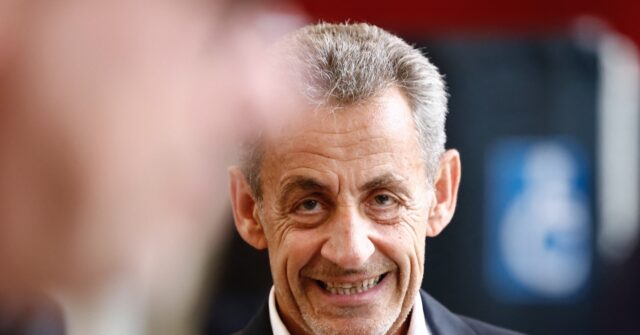Nicolas Sarkozy, former president of France from 2007 to 2012, has received a significant legal blow as France’s highest court, the Court of Cassation, upheld a lower court’s ruling that found him guilty of corruption and influence peddling. The appeal court’s decision reinforces Sarkozy’s conviction and sentences him to a year in prison. However, it is expected that Sarkozy will request to serve his sentence at home under an electronic bracelet since the sentence is less than two years. The court’s affirmation marks a notable moment in French history as it is the first time a former president has been convicted and sentenced to imprisonment for acts committed during their presidency.
The court’s ruling is a culmination of extensive legal challenges faced by Sarkozy. Previous courts had already found him guilty of attempting to bribe a magistrate in exchange for confidential information pertaining to legal inquiries tied to his actions. Both the Paris court in 2021 and the appeals court in 2023 established that Sarkozy had engaged in corrupt activities while trying to manipulate the judicial process. A statement from the Court of Cassation confirmed the finality of the convictions, putting an end to Sarkozy’s attempts to overturn the ruling and signaling a decisive moment in his post-presidential life.
Despite retiring from public life in 2017, Sarkozy has remained a significant figure in French politics, particularly within conservative circles. His presence and influence persist, as evidenced by his attendance at notable events such as the recent reopening of Notre Dame Cathedral. However, the legal troubles faced by Sarkozy are extensive; in addition to the corruption case, he is set to face trial next month over allegations of illicit campaign financing involving millions allegedly received from the late Libyan leader, Moammar Gadhafi.
The corruption case that led to the recent ruling dates back to February 2014 when French investigative judges were scrutinizing Sarkozy’s 2007 presidential campaign financing. During their inquiry, it was revealed that Sarkozy and his lawyer, Thierry Herzog, were conversing via clandestine mobile phones linked to the pseudonym “Paul Bismuth.” These wires were instrumental as prosecutors uncovered dialogues that suggested an exchange of favors to magistrate Gilbert Azibert in return for confidential information regarding another legal investigation involving Sarkozy. Although Azibert did not receive the promised job, the legal implications of Sarkozy’s actions established a solid case for corruption based on French law.
Throughout the ongoing legal proceedings, Sarkozy has consistently denied any wrongdoing and has characterized his actions as misinterpreted or misunderstood. He expressed that there was no malicious intent behind his dealings with Azibert and emphasized a sense of innocence regarding the claims made against him. He has also disparaged the judicial process, labeling it as politically motivated. Nonetheless, the convictions against him stand firm, raising questions about the integrity of political figures and their accountability under the rule of law in France.
As Sarkozy navigates these tumultuous waters—balancing his political legacy with the burden of legal challenges—the implications of his case extend beyond his personal situation. The judicial outcomes signal a reassertion of accountability for high-ranking officials and illustrate a pivotal shift in France, where former leaders can no longer evade legal scrutiny for their actions in office. As the nation watches closely, Sarkozy’s forthcoming trial related to alleged illicit campaign financing may further shape public perceptions of political ethics in the country, potentially influencing the broader political landscape in France as he continues to engage with key conservative constituents.

